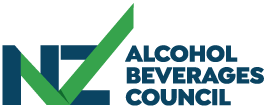OPINION 19th May 2020 – Bridget MacDonald, Executive Director
Commentary over lockdown would have Kiwis thinking that unprecedented levels of alcohol were being sold and consumed, and we became a nation of out of control boozers.
Stories of initial panic-buying implied it would all be drunk in one fell swoop. This was followed by calls to ban online sales as they “soar during the COVID-19 lockdown” and comments suggesting that “people are picking up the worrying trend of boredom drinking in lockdown”.
These statements just don’t reflect reality.
In fact, government research undertaken over lockdown shows one-third of New Zealanders did not have a drink. Of those who did have a drink, around half were drinking the same amount as they usually do, and one-third of people are actually drinking less.[i]
It appears even those who stocked-up didn’t swill it all down – alcohol has a long shelf life. It doesn’t have to be consumed immediately.
Instead of boozing up, Kiwis have been concerned about their family and friends, whether they are going to have a job, how they are going to pay for groceries and bills; and prioritising their health and wellbeing as best they can.
Thirty-six per cent said they were cost-conscious in this time of economic uncertainty, that’s not surprising, and 35% saw lockdown as an opportunity to reduce how much they drink.
A change for the better
COVID-19 will change our lives and our world forever. Yet, change is always constant, and as a nation, we’ve been changing our attitudes toward alcohol consumption for some time.
We are consuming 25% less per capita than we did in the 1970s and 80s, with our alcohol consumption falling below the OECD average.
Positive changes in attitudes towards alcohol are evident; consumers are choosing more no- and low-alcohol options, driven by the younger generation with a focus on health and wellbeing. And it’s a trend that’s being seen globally.
Kiwis are becoming more wellness-focused and health-conscious – they’re thinking about what they are drinking and how they are drinking. Kiwis are making better drinking decisions that are right for their individual circumstances, lifestyle and social situation. COVID-19 lockdown has proven to be no exception.
Total alcohol sales are down 20-30% with restaurants, bars and cafes and retail liquor outlets closed over lockdown, which also indicates a significant decline in consumption for New Zealanders. Without these outlets open spirits sales are down 85%. The ‘boom’ in online sales is only about 15-20% of regular retail sales. Under lockdown, Kiwis shopped for most of their beverages at supermarkets and consumed them at home. While supermarket sales went up, they certainly didn’t replace what would usually be purchased in hospitality businesses.
While Level 2 means some restaurants, bars and retailers can reopen, we’re not sure how Kiwis will spend their discretionary income in such uncertain times or how they will choose to socialise in these challenging circumstances.
Targeted, pragmatic solutions for tackling harmful drinking
Granted, we know that some reported they were drinking more over lockdown. This represents around 20% of us, the same proportion of harmful drinkers in this country pre-lockdown. So while 80% of New Zealanders drink in a moderate and responsible way, there is still more work to be done to reduce alcohol-related harm. However, there seems to be a tendency to view all drinking as harmful and as a problem. It’s not.
We hear about broad brushstroke ways to deal with harmful drinking, like increasing taxes, minimum unit pricing, banning online sales or reducing liquor store hours. But, these ideas are based on the assumption that if we decrease overall alcohol consumption, it will reduce harmful drinking. This wrongly assumes that harmful drinking is directly linked to the affordability or availability of alcohol.
We need to look much deeper into harmful drinking to better understand it – for example, what and how is alcohol being consumed and the reason why someone is drinking in that way. The ‘why’ could be a personal, health or mental health issue. We need targeted, pragmatic solutions that consider the reasons behind this harmful drinking.
Alcohol education is essential to help us all to make better decisions.
Recognising the stresses that Kiwis were under during lockdown, the industry got in behind the CheersNZ! campaign to #drinknormal suggesting people take heed of the Ministry of Health’s low-risk alcohol drinking advice around limiting your intake. It also reminded parents to be mindful of how they were drinking in front of young people in their homes.
The industry’s actions were criticised by some academics. But, we’ve seen what not talking about alcohol has done in the past to reduce harmful drinking. It hasn’t worked.
All of society has a part to play in reducing alcohol-related harm – including the alcohol industry. Why would the alcohol industry be encouraging people to drink less? We are living for the future and responding to consumer demand. We don’t want to see our consumers harmed by heavy drinking. It takes time and skill to produce our products, and we want that to be reflected in the way they are consumed.
Celebrating and accelerating the cultural change
Let’s continue the momentum for change towards a safe and social New Zealand where Kiwis drink in moderation as part of a balanced lifestyle. Facing the facts that our attitudes and behaviours toward alcohol are changing can support further positive changes.
As a nation, we just home-schooled ourselves a very important lesson over lockdown: no, low and slow is the way to go – it’s always okay to say no to alcohol, choose a low alcohol drink or just simply enjoy your drink slowly.
Need help or more information?
Call the Alcohol Drug Helpline on 0800 787 797, free txt 8681, or visit alcoholdrughelp.org.nz. Check out cheers.org.nz and alcoholandme.org.nz for more information on what a standard drink is and how to make better drinking decisions or the Ministry of Health’s Low-risk alcohol drinking advice at alcohol.org.nz.
